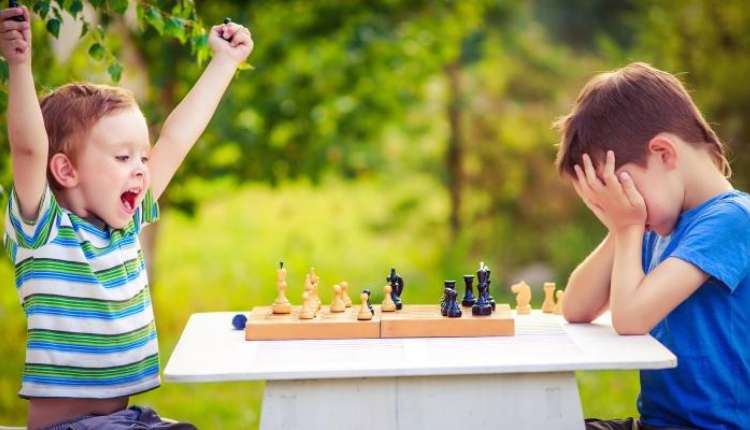What is a game? First of all, we must know that game is an activity that one engages in for fun or enjoyment and sometimes used as an educational tool. Game is the ultimate source of fun, enjoyment and knowledge. In pre-schools, teachers teach students with the help of games. It involves skills, knowledge and also discipline. Like if anybody solves a puzzle, so in solving a puzzle, there is both enjoyment and skill.
Winning and losing has nothing to do with a person’s enjoyment as it is not his job; it is just a game; he or she learns that persistence can lead to victory, which will do well in his or her career. But in today’s world, the mentality of people are like that winning a game is everything; they don’t think about the enjoyment and fun behind it. This is a myth that winning is necessary; sometimes, also losing, a person learns a lot. People should know that playing a game is important than winning or losing; every game we play has its own values and importance. Sometimes just a single game can change our lives. It is better to learn every time, whether it is winning or lose.
The pros of winning:
All know that the feeling of winning is pretty good or excellent. A win is a self-confidence boost, which is a big deal for many youngsters nowadays. The win is defined as a bonus for one’s hard work and effort. Winning also gives winners cash prizes, rewards, public support and much more. Winners have their different lifestyle. A win shows that the game has been played the right way, and the players’ practice paid off. Winning motivates the player to continue playing. Winning connects good feelings between the sport and the player. In children, winning let them think more strategically.
The cons of winning:
Winning isn’t everything because eventually winning becomes boring, and a player becomes content with how things are, which leads to stopping sure learning is not good. Constantly winning or early winning could also be detrimental because it may give players a false sense of their own abilities. Just because a player is winning doesn’t mean that he or she is the best, and stop striving to be working as hard. We have to learn a lot at our younger age, but with winning, we stop. Winning is important, but in competitive games, more than winning, that is important is participation.
The pros of losing:
Most importantly, a person should know how to deal with loss to survive in the world. As it is an important part of our life experience, nobody will survive if they do not know how to deal with loss. Losing makes a person want to strive to be better and achieve what he or she previously couldn’t. The only way to improve is by taking in the mirror and see what is not going in the right direction. Then the person will do more practice to get what he or she wants. The friendship, skills, experiences and life lessons a player can gain are far more valuable across the length of his life and provide you with better memories than just playing a game to win. Somewhere losing helps us to remind ourselves that someone else is potentially bigger and stronger than him. Losing can also drive a person always to improve and grow. It builds character and teaches that how to remain strong in every situation. It teaches you humility, keeps a person grounded and gives valuable lessons.
The cons of losing:
No one wants to lose, and also, no one wants to feel bad. And if a person is constantly losing, it may lead to giving up from that game or sport. Losing; actually hurts: not in an abstract way but an authentic manner. It may lead to stress, anxiety and self-doubt in a person or player. A person who loses can’t get those prizes, public support, rewards and other things. After losing, one may start making sounding excuses to show that he or she is a good player.
Winning and losing don’t matter; what matter is the participation of players. Their experiences and memories will be with the whole life. If one participates in different games, then one day, he or she will be the winner. It increases confidence level, generates potential within a person to cross any difficulties, and realises negatives and positives. At last, honest participation and following the rules in the right manner matters a lot in any game more than winning. So people should think in this manner that involving in-game and playing with positive thinking is much more important than winning.


